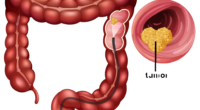Depression and weight problems often go hand in hand, creating a complex relationship that can significantly impact a person’s mental and physical health. While depression can lead to weight changes, either weight gain or weight loss, the reverse is also true—weight issues can contribute to depression. This vicious cycle can be challenging to break, but understanding the connection between depression and weight is the first step in addressing both issues effectively.
How Depression Can Affect Weight
Depression is a serious mental health condition that affects how you feel, think, and act. It can alter eating habits, energy levels, and motivation, which can all contribute to changes in weight.
1. Weight Gain
One of the most common ways depression impacts weight is through weight gain. Many individuals with depression turn to food for comfort, especially high-calorie, high-fat, and sugary foods. This is often referred to as “emotional eating,” where food becomes a coping mechanism to deal with sadness, stress, or loneliness.
Additionally, depression can decrease motivation to exercise or stay active. The fatigue and lethargy that often accompany depression can make it difficult to engage in physical activities, leading to a more sedentary lifestyle, which can contribute to weight gain over time.
2. Weight Loss
While some people gain weight, others experience a significant loss of appetite when depressed, leading to weight loss. Feelings of hopelessness and despair can reduce the desire to eat, and for some, depression can cause gastrointestinal issues such as nausea, which further suppresses hunger.
Severe cases of depression can lead to unhealthy and dangerous levels of weight loss. This may occur because of malnutrition or an inability to take care of oneself properly, worsening the cycle of poor physical and mental health.
How Weight Can Affect Depression
Just as depression can influence weight, struggles with weight can also contribute to the onset or worsening of depression. Both physical and psychological factors play a role in this connection.
1. Body Image and Self-esteem
One of the most significant ways weight affects depression is through body image and self-esteem. People who are overweight or obese often face societal stigma and may feel dissatisfied with their bodies. This negative body image can lower self-esteem and increase feelings of worthlessness, common symptoms of depression.
For those dealing with obesity, the pressure to lose weight and meet societal expectations of beauty can create overwhelming stress and anxiety. When weight loss efforts fail, it can further fuel feelings of inadequacy and hopelessness, exacerbating depression.
2. Physical Health Problems
Weight issues, especially obesity, are linked to several chronic health conditions, including diabetes, heart disease, and hypertension. These health issues can worsen depression by adding more stress and reducing overall quality of life. In some cases, the medication used to treat these physical health conditions can also have side effects that impact mental health, such as weight gain, fatigue, or mood changes.
Additionally, being overweight or obese can lead to physical limitations, such as difficulty moving, joint pain, or breathlessness, which can limit social activities. This isolation and reduced ability to engage in enjoyable activities can worsen feelings of loneliness and sadness, both hallmarks of depression.

Breaking the Cycle of Depression and Weight Issues
Breaking the cycle between depression and weight issues requires addressing both the mental and physical aspects of the problem. Here are some strategies that can help:
1. Seek Professional Help
If you’re struggling with both depression and weight changes, seeking professional help is essential. A healthcare provider or mental health professional can assess your symptoms and create a personalized treatment plan that addresses both issues. This may include therapy, medication, or a combination of the two.
Cognitive-behavioral therapy (CBT) is a common form of therapy used to treat depression. It can also help individuals manage emotional eating, and body image issues, and develop healthier coping mechanisms.
2. Develop Healthy Eating Habits
Whether depression has caused weight gain or weight loss, focusing on healthy eating habits is crucial. Avoid using food as a way to cope with emotions, and instead, focus on balanced, nutrient-rich meals that fuel both your body and mind. If you’re struggling with meal planning or eating properly, a registered dietitian can provide guidance and support.
3. Incorporate Physical Activity
Exercise has been shown to improve mood and mental well-being by releasing endorphins, which are natural mood elevators. Even small amounts of physical activity, like walking or stretching, can make a difference. If depression has reduced your motivation to move, start with low-impact exercises and gradually increase your activity level as your mood improves.
4. Practice Mindfulness and Stress Management
Mindfulness practices like meditation, deep breathing, or yoga can help manage the stress and anxiety that often accompany depression and weight struggles. Learning how to cope with negative thoughts and emotions healthily can reduce emotional
eating and improve your overall mental health.
Conclusion
The link between depression and weight is complex, with each influencing the other in various ways. Whether you’re experiencing weight gain, weight loss, or fluctuating weight due to depression, it’s important to address both the mental and physical aspects of your health. By seeking professional help, adopting healthier habits, and finding effective ways to manage stress, you can break the cycle and work toward a happier, healthier life.
Understanding this connection is the first step in taking control of your health and well-being. If you’re struggling with depression or weight issues, don’t hesitate to reach out to a healthcare professional who can guide you through this journey.









